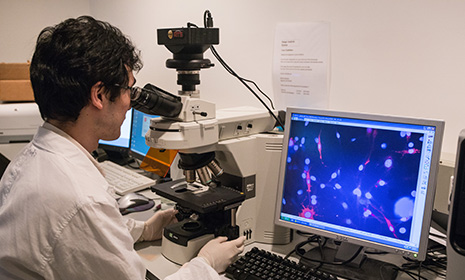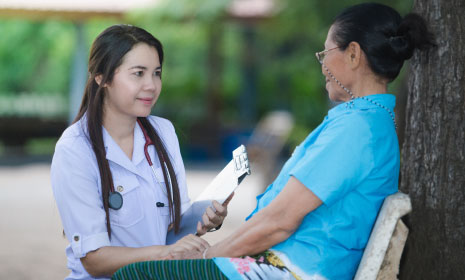Seminar: Strategies for Predicting the Immunity of Vaccines
|
Topic: |
Strategies for Predicting the Immunity of Vaccines |
|
Speaker: |
Dr Eva K Lee, Director, Center for Operations Research in Medicine and HealthCare Co-Director, NSF I/UCRC Center for Health Organization Transformation Professor, Industrial and Systems Engineering Georgia Institute of Technology Atlanta, USA |
|
Date: |
20 December, 2012 (Thursday) |
|
Time: |
11:00am - 12:00pm |
|
Venue: |
Seminar Room 6, LG1/F, Laboratory Block, LKS Faculty of Medicine Building, 21 Sassoon Road, HK |
Abstract:
The ability to successfully predict the immunity and effectiveness of vaccines would facilitate the rapid evaluation of new and emerging vaccines, and the identification of individuals who are unlikely to be protected by a vaccine. In this talk, we will describe a multidisciplinary approach involving immunology, genomics and bioinformatics to predict the immunity of a vaccine without exposing individuals to infection. This approach addresses a long-standing challenge in the development of vaccines -- that of only being able to determine immunity or effectiveness long after vaccination and, often, only after being exposed to infection.
The first study involved YF-17D to predict the body's ability shortly after immunization to stimulate a strong and enduring immunity against yellow fever. Healthy individuals were vaccinated with YF-17D and the T cell and antibody responses in their blood were studied. There was a striking variation in these responses between individuals. Analysis of gene expression patterns in white blood cells revealed that in the majority of the individuals the vaccine induced a network of genes involved in the early innate immune response against viruses.
A discrete support vector machine classification model and feature selection algorithm were applied to the gene signatures to identify discriminatory sets and establish the classification rule that can classify the T cell response and the antibody response induced by the vaccine. To validate its predictive accuracy, and whether these gene signatures could predict immune response, a second group of individuals were vaccinated, and we were able to predict with up to 90 percent accuracy which of the vaccinated individuals would develop a strong T or B cell immunity to yellow fever.
To determine whether this approach can be used to predict the effectiveness of other vaccines, including flu vaccines, a second study is based on a series of clinical studies during the annual flu seasons in 2007, 2008 and 2009. Healthy young adults were vaccinated with a standard flu shot (trivalent inactive vaccine). Others were given live attenuated vaccine nasally.
Comprehensively surveyed, the activity levels of all human genes in blood samples from the volunteers revealed that the activity of many genes involved in innate immunity, interferon and reactive oxygen species signaling were changing after flu vaccination. Biological analysis also identified genes in the "unfolded protein response," necessary for cells to adapt to the stress of producing high levels of antibodies. Using various trials for establishing the classification rule, predictive accuracy as high as 90% was achieved. Encouragingly, some of the genes identified in the seasonal flu study were also predictors of the antibody response to vaccination against yellow fever. Further, this systems approach facilitates discovery of new functions for genes, even if scientists previously did not suspect their involvement in antibody responses.
The talk will conclude with a summary of the theoretical findings, solution characteristics, and computational challenges of our classification model.
This work was performed in collaboration with lead investigator Bali Pulendran from the Emory Vaccine Center, with the speaker’s main contribution relating to the classification and predictive modeling and algorithms.








.png)
